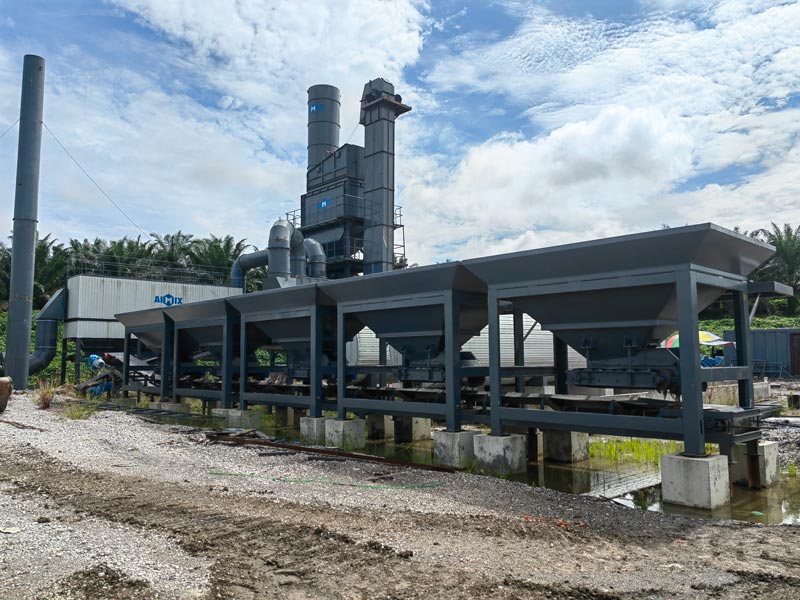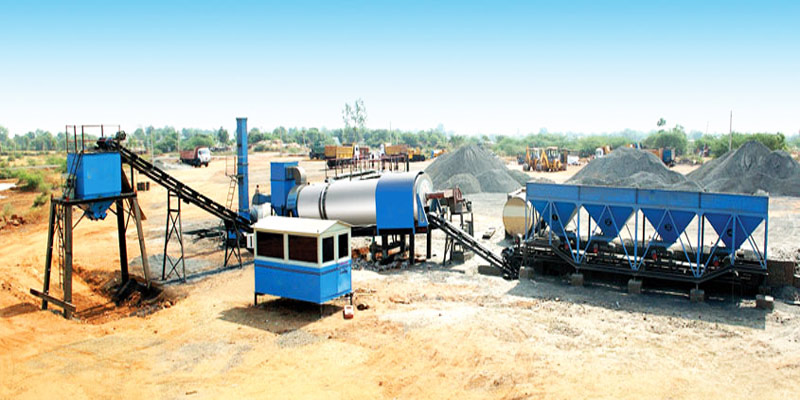When considering the setup of an asphalt mixing plant, understanding the land area and infrastructure requirements is crucial for successful operation. Whether you’re expanding your business or starting a new project, knowing these requirements ensures you can choose the right site for your plant. Let’s break down the essential land and infrastructure considerations that will help you get started.

Land Area: How Much Space Do You Need?
One of the first questions you’ll need to answer when planning an asphalt mixing plant is how much land you’ll need. The land area required depends on several factors, including the size and capacity of the plant, as well as the types of asphalt plants. Typically, a small to medium-sized plant requires between 2,000 to 5,000 square meters, while larger plants with higher production capacities might require 5,000 to 10,000 square meters or more.
When selecting the land for your plant, it’s essential to consider not just the space for the plant itself but also room for the following:
- Storage of raw materials such as aggregate, bitumen, and filler materials.
- Parking and maneuvering space for trucks delivering raw materials and transporting finished asphalt.
- Buffer zones for safety and noise control.
An adequate land area will ensure smooth operations, reduce bottlenecks, and improve overall efficiency.

Infrastructure Requirements: Key Considerations for Smooth Operation
In addition to land area, the infrastructure around your asphalt mixing plant plays a critical role in its successful operation. Some key infrastructure requirements include:
- Access to Roads and Transport Links: Asphalt plants must be located near major roads or highways for easy delivery of materials and transportation of finished asphalt. Good road access ensures that trucks can efficiently enter and exit the site, which is essential for keeping production schedules on track.
- Power Supply: Asphalt mixing plants require a stable and continuous power supply to operate efficiently. Depending on the plant’s size, you may need to arrange for high-capacity electricity to power the plant’s machinery and heating systems. It’s important to verify that the local grid can handle the demand or consider alternative power sources such as generators.
- Water Supply and Waste Management: An adequate water supply is needed for dust control, plant cleaning, and sometimes cooling. Additionally, a reliable system for waste disposal, including handling asphalt waste and runoff, is essential for environmental compliance and operational efficiency.
- Communication and Security Infrastructure: Reliable communication systems, such as phones, internet, and onsite security, are also critical. Security measures like fencing, surveillance, and lighting will help protect your plant and materials from theft or vandalism.

Environmental and Regulatory Compliance: Don’t Overlook Legal Requirements
When selecting land for your asphalt mixing plant, it’s important to consider environmental regulations and zoning laws. Asphalt plants are subject to strict environmental standards, especially regarding air quality, noise pollution, and waste disposal. Ensure the site you choose is zoned for industrial use and meets local environmental regulations.
When reconsidering the location of bitumen production plant, some factors should be taken into account:
- Air Pollution Control: Asphalt plants release emissions, so you’ll need to plan for proper air filtration systems to minimize dust and fumes.
- Noise Control: Asphalt mixing can be noisy, so selecting a location that minimizes noise impact on surrounding communities is important.
- Local Permits: Before you start construction, check local laws regarding permits, environmental impact assessments, and other regulatory approvals.
By ensuring your plant site complies with local laws and regulations, you can avoid costly fines and delays while contributing to environmental sustainability.
Conclusion: Plan Ahead for a Successful Asphalt Plant Setup
Choosing the right land area and ensuring your infrastructure meets the operational needs of your asphalt mixing plant are essential for long-term success. By factoring in space requirements, access to transport, power, and environmental compliance, you can avoid unnecessary challenges and create an efficient, cost-effective operation. Proper planning and infrastructure investment at the beginning will help your plant run smoothly and keep your projects on track.
